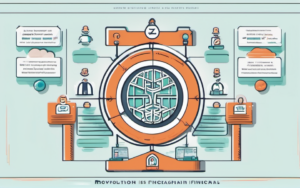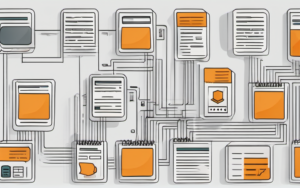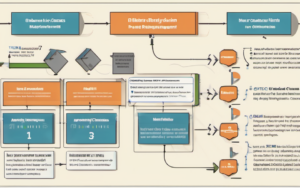The concept of Blockchain Transparency is revolutionizing the way we think about charity donations. Imagine a world where every penny donated is tracked, recorded, and publicly accessible, ensuring accountability and trust throughout the entire process. Blockchain technology, with its decentralized and immutable nature, is making this vision a reality.
The Rise of Blockchain in Charity
Transparency and Accountability in Traditional Charity
Traditionally, charity donations have often been shrouded in a lack of transparency. While many organizations strive for accountability, the process can be complex and opaque. Donors may question where their money goes, how it’s used, and whether it truly achieves the intended impact. This lack of transparency can hinder donor trust and limit the potential for charitable giving.
Blockchain: A Game-Changer for Transparency
Blockchain technology offers a revolutionary solution to these challenges. Its decentralized, transparent, and secure nature provides an unprecedented level of accountability in the charitable sector. By using blockchain, charities can create a permanent and auditable record of every donation, ensuring that funds are used efficiently and effectively.
How Blockchain Enhances Transparency
Immutable Record-Keeping
Blockchain’s core principle is immutability, meaning that once a transaction is recorded on the blockchain, it cannot be altered or deleted. This ensures that every donation, from the initial contribution to its final use, is permanently documented and verifiable.
Real-Time Tracking of Donations
Blockchain allows for real-time tracking of donations. Donors can see exactly where their money is going, how it’s being used, and the impact it’s having. This transparency fosters a sense of engagement and accountability, encouraging more people to participate in charitable giving.
Auditable Transactions
Blockchain transactions are inherently auditable. Anyone with access to the blockchain can view the complete history of donations, ensuring that the funds are used as intended. This transparency fosters trust and accountability, promoting ethical practices within the charity sector.
Reduced Costs and Increased Efficiency
Blockchain can streamline donation processes, reducing administrative costs and increasing efficiency. By eliminating intermediaries and automating processes, charities can save money and dedicate more resources to their core mission.
Benefits of Blockchain for Charities and Donors
Increased Trust and Confidence
Blockchain transparency builds trust and confidence between charities and donors. Knowing that their donations are tracked and verifiable, donors feel more secure and are more likely to support charitable causes.
Enhanced Donor Engagement
Blockchain allows donors to actively participate in the donation process. They can track their contributions, see the impact they are making, and even vote on how funds are used. This engagement fosters a sense of ownership and strengthens the connection between donors and charities.
Improved Impact Measurement
Blockchain provides a robust framework for measuring the impact of charitable giving. By tracking donations and their intended use, charities can assess their effectiveness and demonstrate the tangible results of their work.
Reduced Fraud and Mismanagement
The transparency and immutability of blockchain significantly reduce the risk of fraud and mismanagement within charities. This fosters a more ethical and accountable environment, protecting donors and ensuring that their contributions are used for their intended purpose.
Examples of Blockchain in Charity
Cryptocurrency Donations
Cryptocurrency donations are a growing trend in the charitable sector. Blockchain platforms like Ethereum and Bitcoin provide secure and transparent ways to donate crypto assets to charities.
Smart Contracts for Automated Donations
Smart contracts, which are self-executing agreements stored on the blockchain, can automate donation processes. For example, charities can use smart contracts to automatically distribute funds to beneficiaries based on pre-defined criteria.
Decentralized Platforms for Charity Management
Decentralized platforms built on blockchain technology can simplify charity management and increase transparency. These platforms allow for secure record-keeping, efficient fundraising, and transparent distribution of funds.
Challenges and Future of Blockchain in Charity
Adoption and Scalability
While blockchain offers significant potential, its adoption within the charity sector faces challenges. One key hurdle is the need for widespread adoption and scalability. Charities and donors need to embrace blockchain technology and understand its benefits.
Regulatory Landscape
The regulatory landscape surrounding blockchain is still evolving. Clear guidelines and regulations are needed to ensure the safe and ethical use of blockchain in charity.
Education and Awareness
There is a need for greater education and awareness about blockchain technology within the charity sector. Donors, charities, and policymakers need to understand the benefits and potential of blockchain to fully leverage its transformative power.
Integration with Existing Systems
Integrating blockchain technology with existing charity management systems can be complex. Charities need to invest in the infrastructure and expertise to seamlessly integrate blockchain into their operations.
A Transparent Future for Charity
The potential of blockchain for social good is immense. By embracing transparency and innovation, the charity sector can build a more ethical, efficient, and impactful future. Donors can have greater confidence in their contributions, charities can demonstrate their impact, and the world can benefit from more effective and accountable charitable giving.
Embrace the power of blockchain and join the movement towards a more transparent and impactful future for charity.




